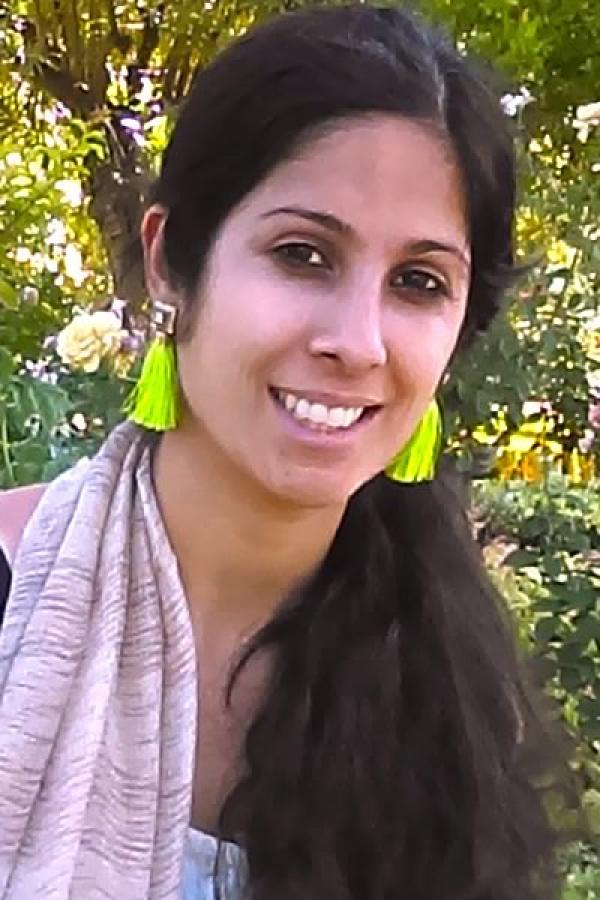Shilpi Suneja

Photo by Neena Wahi
Bio
Shilpi Suneja was born in India. She holds an MA in English from New York University and an MFA in Creative Writing from Boston University, where she was awarded the Saul Bellow Prize. Her work appears in Michigan Quarterly Review, Bat City Review, Little Fiction, Hyphen, Consequence, Kartika Review, Solstice, Stirring, Breakwater Review, Kafila.online, and TwoCircles.net, among other places. She is currently at work on a novel about the long shadow of the Indian Partition, as well as a novel about a postcolonial Don Quixote.
The day I got “the call” I was struggling to get out of bed, mourning an acute personal loss that had left me distraught. “Expect nothing good to happen to you, not for a long while,” I’d advised myself. And so, when I saw the email from the NEA asking me to call them back, my first thought was, not only did I not get the grant, I have to hear about it as well! I think my first words to the director of the literature program were, “Are you sure you have the right person?”
Needless to say, this wonderful gift, this affirmation could not have come at a better time. It has filled me with enough hope that I want to try doubly hard to write more, think deeper, and send work out with more confidence. Practically speaking, the grant money will help me to hold off on full-time employment while I finish revisions on my first novel, and begin first drafts of two new ones.
More importantly, the NEA has made me see that I don’t have to be a believer, I can doubt all I want. But in the midst of all the confusion, I must return. Return to the page, to the desk, to the books. And always, to the words, new and old. Even more importantly, the award has made me believe in, if nothing else, my mother’s clairvoyance. That fateful morning, trying to get me to leave my bed, she’d said: “Something good will happen for you today, but if you don't start your day, you won't find out!” Thank you, wonderful NEA!
Excerpt from "Death on a Rickshaw
On the cold February morning he was to die, Barre Nanu, proud proprietor of Glorious Creations Rehman Saris, chance owner of Tilat Villa, set off to the dentist for a new set of dentures. His family found his sudden obsession with teeth worrisome. Only the week before he’d complained of chest pains, and the doctor had recommended bed rest. But Barre Nanu had his reasons. The handloom workshop—his livelihood and his labor of love—had recently folded, and much of his social standing with it. His only son, whom he’d educated into a brilliant surgeon, was living in America, saving American lives. His eldest daughter was installed in Delhi, throwing parties for her professor husband. And his youngest, on whom Barre Nanu doted and in times of need leaned on, was living under his roof along with her two children, completely dependent on him.
What with all his troubles the sight of his frightful yellowed teeth, encased in an otherwise handsome face, roused him from bed, caused him to dress in the pre-dawn light of his room. He combed his hair, wrapped a scarf around his neck, and even remembered to nod at the photo of his wife.
His daughter insisted on accompanying him, but Barre Nanu waved her off. He ripped in two the piece of paper on which she’d written out his name, address, and health condition.
In the dentist’s office, laughing gas fumes curled up his nose and Barre Nanu dreamt of gorging on unripe guavas, cracking peanut brittle cubes, shredding roast corn rubbed with spices. While the dentist advised watery daal for a week, Barre Nanu made ambitious plans—wholegrain winter treats, rough summer snacks.
He could see the Life Insurance Corporation building from the window, massive and yellow, standing for all these years, insuring lives. In fact, all along Mall Road, ration shops, dispensaries, and banks provisioned his home, cured his colds, secured his money; all manner of institutions rallied to improve his life. With a little faith he could achieve an aspect of permanence.
At the end of the procedure, Barre Nanu assured the dentist he knew where he was—in his adopted city of Kanpur, where his children had been born and where he’d met his wife. It was February 1993. He named the prime minister and the president.
But as soon as he stepped into the road, the sun pierced his eyes, anesthesia rushed up his nerves, and Barre Nanu suffered a moment of memory lapse. He pulled out the paper from his pocket. Half a name, half an address stared back:
Balraj K
17/81 Ma
Congesti
The previous five decades shrank, the first two roared and swelled. Pain hammered his head, his mouth went numb, and when he opened his eyes, he could not recognize the landmarks that had guided him home for the past fifty years.
What place is this?
Barre Nanu crossed the street. Outside the rotary club an old wooden plaque announced the city’s origins. He began to read.
Kanpur was old, but not in the Indian sense, which meant ancient, even mythical, its origins tied to the miracles of gods—the crossing of a river, the clearing away of a forest by an outrageous cosmic dance. Its history was obvious in the way that helped a confused man cope.
("Death on a Rickshaw" first appeared in Bat City Review)

